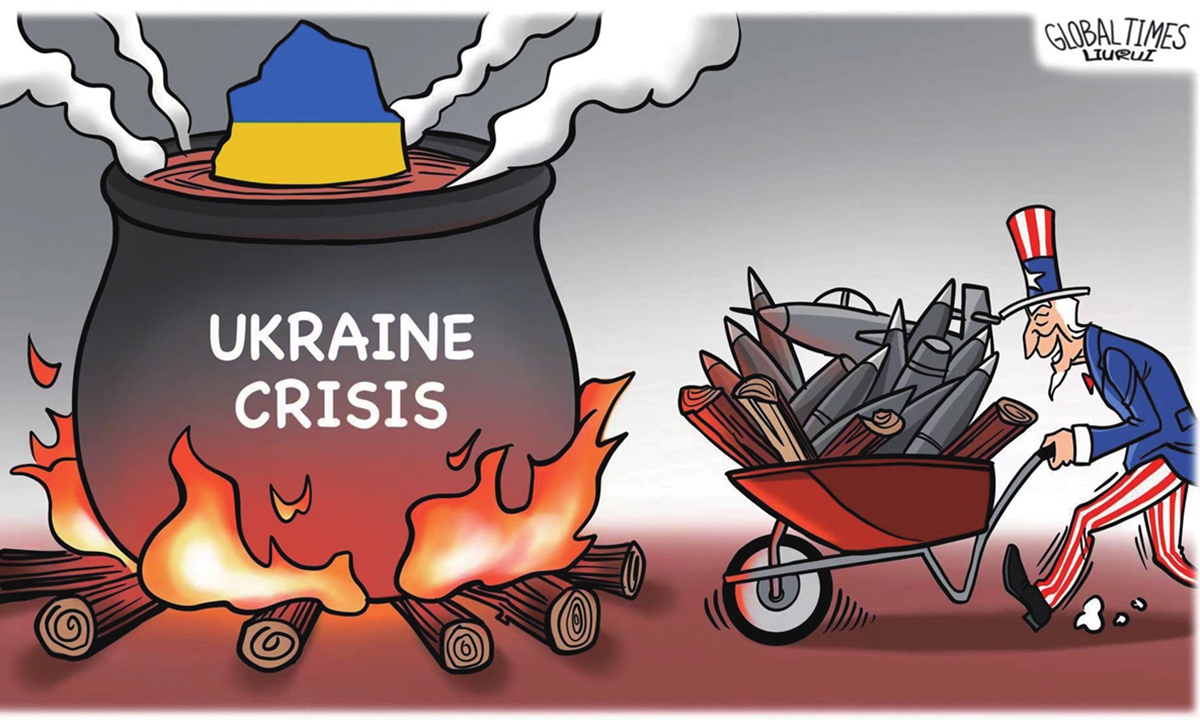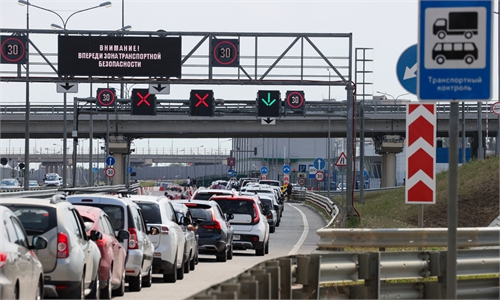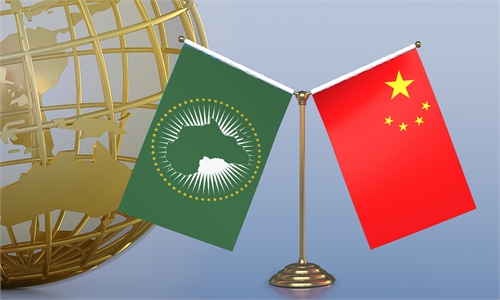
US Ukraine crisis Illustration: Liu Rui/GT
Russia and Ukraine are still a long way from agreeing on a cease-fire, primarily because of the US' involvement, Chinese experts said on Sunday, noting that in terms of promoting peace talks, it would be better to reach small agreements on specific issues first, and gradually accumulate more.
Russian authorities claimed that three Ukrainian drones attacked Moscow in the early hours on Sunday, injuring one person and prompting a temporary closure to traffic of one of four airports around the Russian capital, according to TASS. It was the fourth such attempt at a strike on the capital region this month and the third this week.
The Russian Defense Ministry said three drones targeted the city. One was shot down in the surrounding Moscow region by air defense systems and two others were jammed. Those two crashed into the Moscow City business district.
Experts believe that Russia and Ukraine are still a long way from reaching a cease-fire agreement, primarily because of the US' involvement. It is expected that the deadlock may end after the US elections next year, after which the US may push Ukraine to negotiate a cease-fire to shift attention to China, Cui Heng, an assistant research fellow from the Center for Russian Studies of East China Normal University, told the Global Times on Sunday.
Saudi Arabia is set to host peace talks among Western countries, Ukraine and key developing countries, including India and Brazil, early next month, as Europe and Washington intensify efforts to consolidate international support for Ukraine's peace demands, the Washington Street Journal reported. Saudi Arabia and Ukraine have invited 30 countries, including Indonesia, Egypt, Mexico, Chile and Zambia.
The UK, South Africa, Poland and the EU are among those who have confirmed attendance. For now, US National Security Advisor Jake Sullivan is expected to attend, according to a person familiar with the plan.
Many countries are willing to mediate, with proposals from Africa and the Middle East. However, the success of mediation depends not only on willingness but also on their capabilities and international political influence, a Middle East analyst told the Global Times on Sunday.
In view of this, a country that can play a mediation role needs to have the capability to ensure future security, preventing large-scale conflict between Russia and Ukraine, and must be respected by both Russia and Ukraine, experts said. Saudi Arabia's invitation to these countries is a pragmatic approach, as Saudi Arabia does not yet have the ability to mediate international conflicts strongly.
On the question of starting peace talks, Russian President Vladimir Putin said on Saturday that "We did not reject them... In order for this process to begin, there needs to be agreement on both sides," when speaking at a press conference after meeting African leaders in St Petersburg on Friday and hearing their calls for Moscow to move ahead with their plan, according to CNA.
Putin also said that an African initiative could be a basis for peace in Ukraine but that Ukrainian attacks will make it hard to realize.
There is a huge gap between the positions of Russia and Ukraine when it comes to future negotiations, especially on issues of territory and sovereignty. There is hardly any room for compromise, Cui said.
What can be done is to make some compromises on other issues, such as food issues, stop attacks on infrastructure, and create an atmosphere for future negotiations. In terms of promoting peace talks, it would be unrealistic to expect Russia and Ukraine to lay down their arms all at once. It would be better to reach small agreements on specific issues first, and gradually accumulate more, he said.


